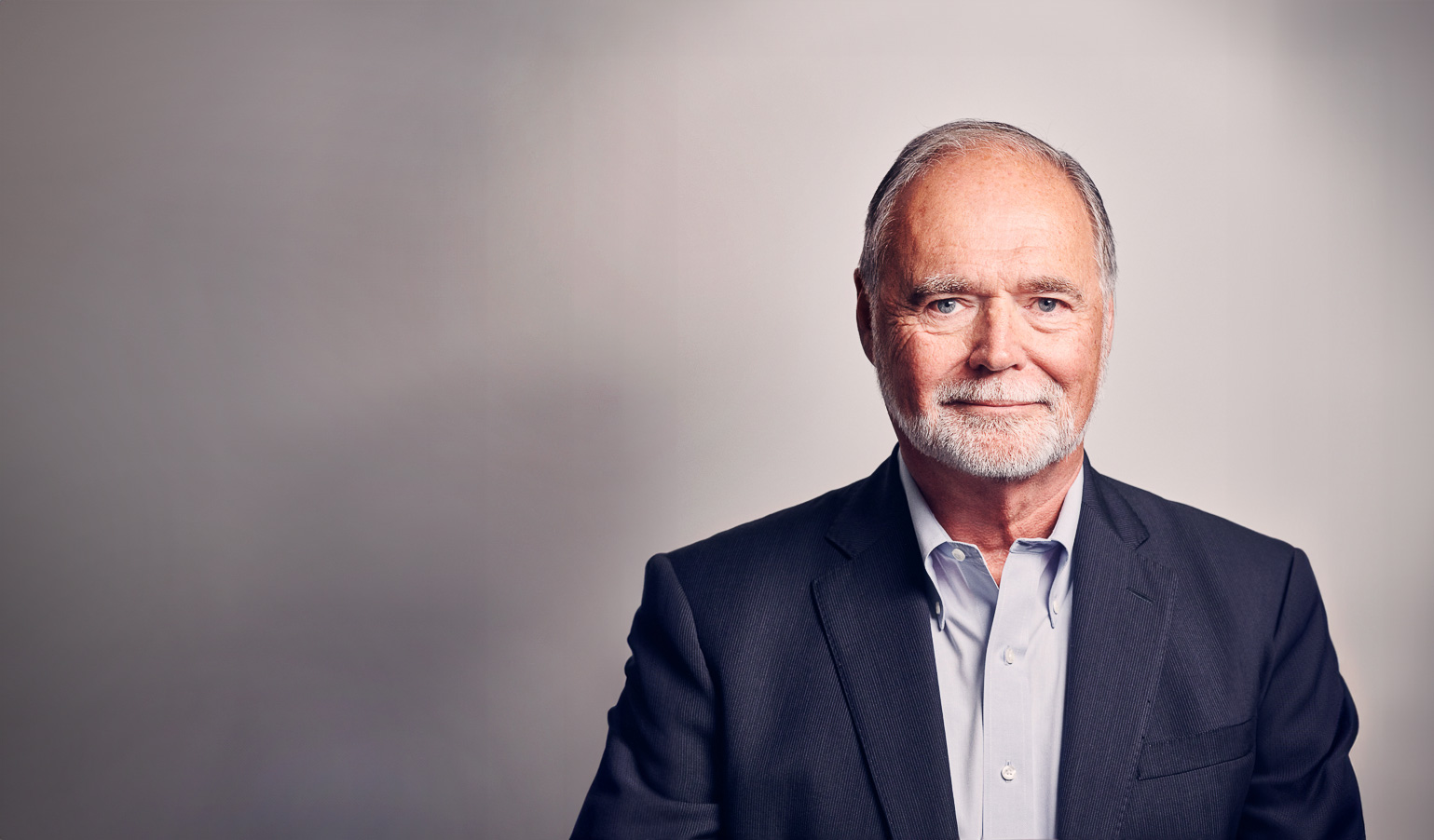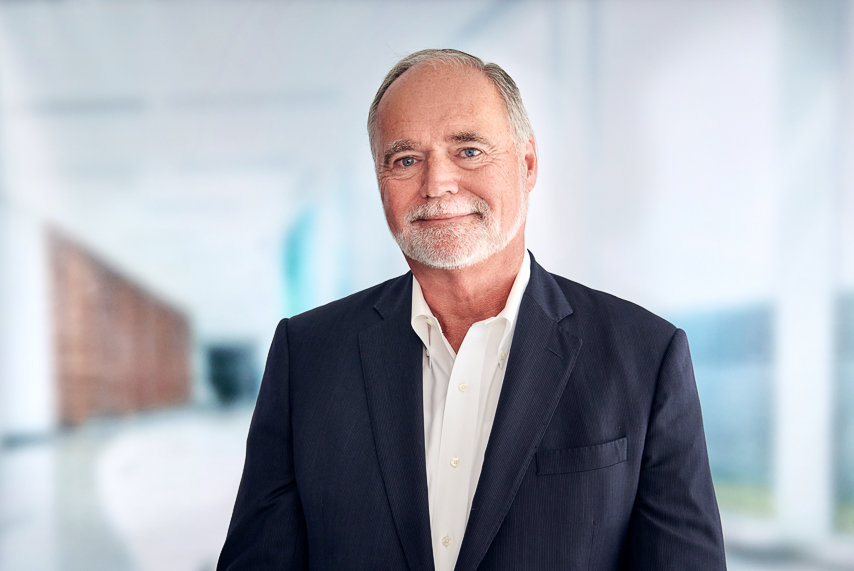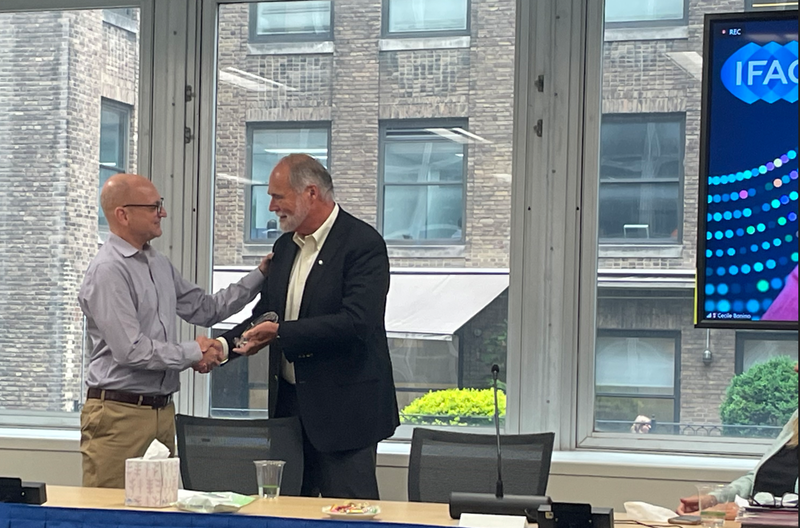C Suite Q&A, Kevin Dancey, CEO IFAC
IFAC – Preparing future-ready accounting professionals
Zoya Malik, Editor -in Chief, IAB spoke to Kevin Dancey, CEO, International Federation of Accountants (IFAC) on the organisation’s global approach to sustainability standards, reducing the risk of regulatory fragmentation and advocating for assurance training and certification to follow a Code of Ethics to instil trust in ESG reporting, to be delivered by well-trained professional accountants with a public interest mandate

Zoya Malik: What’s your view on new trends in raising audit and assurance standards?
Kevin Dancey: Well, first of all, I like your characterisation. High quality audits and assurance are incredibly important, as they’re the basis on which trust is built between an organisation and its stakeholders.
In terms of what’s new, the biggest opportunity --and responsibility-- ahead for our profession is the reporting and assurance of sustainability-related information. As more and more companies around the world will be required to report on and assure such information, it is imperative that professional accountants are prepared to address this public interest issue, regardless of whether they are working inside companies or in public practice.

Kevin Dancey
CEO, International Federation of Accountants
ZM: How is IFAC helping the profession prepare for this challenge?
KD: In numerous ways. From a policy perspective, IFAC has long been a supporter of the creation of global standards, regulation that supports decision-useful disclosure, and the value of an interconnected approach to sustainability and financial information reporting and assurance. From the perspective of preparing individuals, IFAC continues to work with professional accountancy organisations around the world to advocate for the acquisition of sustainability-specific knowledge to complement the existing skill sets that position professional accountants so well. As a founding member of the ISSB’s Partnership Framework, IFAC is also bringing to bear the expertise of our Education Panel and our network of accountancy education directors and academic experts to provide input to the ISSB, as it develops an on-line, white label curriculum designed to help companies apply the ISSB’s first two standards—S1 and S2. We will help facilitate dissemination of this educational resource, which will be available free of charge.
ZM: The accounting profession is facing considerable headwinds in attracting new entrants and retaining existing talent. What’s being done to address these challenges?
KD:The ‘war for talent’ certainly isn’t unique to the accountancy profession, but it’s true that we are experiencing fierce competition from other attractive careers in finance, consulting, technology, and entrepreneurship, to name a few.
Earlier this year, IFAC, as the global body for the profession, convened the chief executives of more than 80 professional accountancy organisations from around the world to coordinate our thinking and insights about how we can best address these challenges. Similarly, I had the opportunity to represent IFAC at Forum of Firms meetings in Paris and Sao Paulo, this spring, where the same issues were given prominence. All of these platforms were designed by the profession as opportunities to learn from each other, and there was tremendous energy to what we were doing.
Topics of discussion included such things as apprenticeships and how to open new pathways to the profession; how we can collaborate with academia to update and align accounting curricula with evolving opportunities in the profession; and the tremendous purpose-driven work that exists is specialties such as sustainability reporting and assurance, as well as in anti-corruption initiatives being led by the profession.
There are no silver bullets or quick solutions, but what was evident throughout was a strong shared commitment both to our profession and to the public interest we serve, and I’m very excited about this journey that we are on.
ZM: Do tell us about apprenticeships and other alternative pathways to the profession.
KD: As you know, we are a highly regulated profession, and the intense educational and stringent licensing and certification requirements can act as a barrier to entry for aspiring accountants. These requirements may limit the pool of individuals willing or able to pursue a career in accounting. So as a profession, we are looking at ways to be more inviting to new talent. One great example is the work being done by AICPA who have introduced a Registered Apprenticeship for Finance Business Partners programme. Another good example is the Association of Accounting Technician’s apprenticeship programme, which seeks to connect entry-level professionals with interested employers and other folk, about where and how to apply for apprenticeships, but also helps employers learn about how to hire apprentices.
ZM: Do you agree that accountants have an overall image problem?
KD: Yes, one of the biggest challenges we’re battling today is an outdated perception of our profession and of what accountants do. The stereotype is that we’re all number-crunching introverts who are more comfortable with spreadsheets than people, but that’s simply not the case. Accountants are leading businesses, driving strategy, and pioneering how companies manage sustainable value creation…they’re at the center of everything with the ability to enable change….it’s actually very exciting stuff. We need to do a better job of owning our narrative and helping the public, and especially students, understand the full range of careers that accountants have, and the value we bring to businesses, government, and society at large.
ZM: What’s your view on how digital investment is changing accounting roles via automation and AI?
KD: Technology and AI are being welcomed by accountants, and rightfully so, because they’re empowering tools. The “number-crunching” aspect of accounting is frankly much better suited to machines, which frees up professional accountants to apply their professional judgment and focus on the strategic, insight-driven, problem-solving, and advisory parts of what we do.
ZM: How will a shortage of accountants impact business?
KD: I’d frame that question a little differently and ask, “How would a shortage of accountants impact society?” This better illustrates the broad impact that accountants have. Think about it this way: the work we do helps businesses and capital markets operate and thrive, which contributes to healthy economies, which ultimately supports societies. The fact is that accounting is the language of business. Without this global “language” and the standards that guide our work, there would be no way for businesses and economies to communicate. So, a shortage of professional accountants would be extremely disruptive, and that is why it’s so important that we focus on attracting the best and the brightest.
ZM: Is IFAC working on any initiatives with professional accountancy organisations to attract and retain talent?
KD:We’re working with PAOs to ensure that their educational programming is responding to trends in sustainability, anti-corruption, public financial management, and technology. We believe that providing information and guidance (like that found in Connecting Your Educational Programming to Emerging Trends) about these fields, will help address not only the attractiveness of the accountancy profession, but issues that are important to our public interest mandate.
We also want to encourage folks in the profession to make progress in more inclusive hiring practices, which is where reports like Diversifying Global Accounting Talent Actionable Solutions for Progress come in. It’s important that when we plan for attracting and retaining talent, we’re making sure we reach out to a diverse pool of students. Our work starts with marketing the profession as a viable and desirable career path to all.
Finally, as I’ve mentioned, if we position the accountancy profession as a champion of sustainability and ESG reporting, we can show students that this is a career with a real sense of purpose, which I think will be attractive to the next generation. The story we tell about accountants, needs to be that this profession is not only a viable and desirable career path, but one that makes a difference in the world.

Kevin Dancey at IFAC staff townhall, New York, 2023
ZM: What is your view on Gen Z recruitment for the future growth of accountancy – how do you see this generation’s priorities and skills redefining work, and what strategies should organisations adopt to best harness Gen Z’s potential?
KD:We know from research that’s been done that Gen Z is purpose-driven, but also pragmatically focused on job security. Accountancy, especially if one specialises in sustainability for instance, could be the perfect fit for an individual looking for a stable job with the opportunity to make a difference.
ZM: How has the day-to-day job of an accountant changed over the past few decades? What are professional accountants doing today that they might not have been doing 10 years ago?
KD:One of the most interesting shifts I see is that, thanks to technology and the ability to handle large data sets so easily, accountants are able to better assess both historical trends and future prospects. Data-driven insights are so much more available, and practitioners can provide higher value, future focused, strategic work.
ZM: What role is the accounting profession playing in creating a global sustainability reporting system?
KD:There is a growing demand for high-quality sustainability information, and of course, the demand for the assurance of sustainability reporting is part of the “high-quality” part of that equation. This demand has led to the establishment of the International Sustainability Standards Board – or ISSB – under the IFRS Foundation to create a comprehensive global baseline for sustainability-related financial disclosures. Not surprisingly, IFAC’s agenda for sustainability focuses on a global approach to sustainability standards – one that reduces the risk of regulatory fragmentation and builds on a standard-setting structure for financial reporting that already exists – and already works! – in 144 jurisdictions around the world. Importantly, jurisdictional or “regional” considerations, like those in Europe, must be taken into account in building such a system.
An important element in creating a global sustainability reporting system is engaging on the local level. Professional accountancy organizations, accounting firms and even individual professional accountants in business should be engaging now with their policymakers to consider what mechanisms may need to be established to make forthcoming reporting requirements effective in their jurisdiction.
ZM: Is assurance of sustainability information more of a challenge or an opportunity for the accounting profession?
KD:In our recent “State of Play” study of global trends in the reporting and assurance of sustainability information, we found a seven percent increase in the number of global companies obtaining independent assurance on ESG factors, and around 60 percent of these engagements were done by professional accountants.
Most of the rest were done by “other service providers” or consultants, people without our assurance training and certification, and who may not follow a Code of Ethics like ours, who see a chance to step into the market. There’s an important public interest element here.
Professionally qualified and licensed accountants have the requisite expertise, objectivity, integrity, commitment to professional standards, and regulatory oversight that are essential for instilling trust in ESG reporting. If someone’s going to do this work, it should be people with a public interest mandate: professional accountants.
And trust in sustainability assurance engagements – which leads to trust and confidence in sustainability information – is too important to be left to unregulated entities.
I believe this is a once in a generation opportunity and public interest responsibility, but it will not be given to us. We need to earn it, every day.